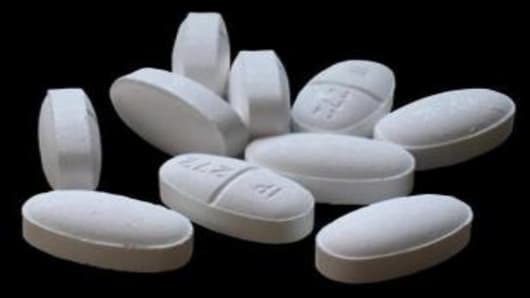Japanese drug maker Daiichi Sankyo will pay up to $4.6 billion for control of India's Ranbaxy Laboratories, the latest in a string of global health deals as firms look to bulk up and diversify to fend off aggressive rivals.
The deal -- the second-largest foreign acquisition of an Indian company -- represents a major foray into the high-growth area of generic drugs for Daiichi Sankyo, following large overseas acquisitions by other Japanese drug makers.
Generic drug sales are booming as countries look to curb spiraling healthcare costs, but competition is intense.
Drug makers worldwide are searching for new and emerging markets to drive profit growth as sales of traditional branded drugs in the United States, Europe and Japan start to slow.
The deal values Ranbaxy, India's biggest drugmaker by sales, at $8.5 billion, with the offer price at a 31.4 percent premium to its closing price on Tuesday.
"I like this deal very much," said Kenji Masuzoe, senior pharmaceuticals analyst at Deutsche Securities.
"The pure pharma business model has limitations and the industry has to think about hybrid models like pharma and agribusiness or pharma and generics," he said.
The deal would give Daiichi Sankyo operations in 60 countries, from 21 now, and make it around the 15th largest pharmaceutical company in the world, President and CEO Takashi Shoda said at the media conference in New Delhi.
Healthcare information group IMS Health estimates emerging market drug sales will hit $400 billion a year by 2020, equivalent to revenue today from the United States and Europe's top five markets combined, and contribute more than 50 percent to global market growth.
Generics are expected to play are pivotal role in accessing these large but relatively low-price markets, playing into the hands of Indian companies like Ranbaxy that have unrivalled expertise in developing cheap versions of medicines that are no longer covered by patents.
Ranbaxy is aiming for 20-25 percent profit growth and 18-20 percent revenue growth for 2008. In the March quarter, its consolidated profit rose 7 percent to 1.53 billion rupees. Consolidated sales were 16.2 billion rupees.
Daiichi Sankyo will buy the 34.8 percent controlling stake held by Ranbaxy's founders, the Singh family, at 737 rupees per share. It will then make an open offer for up to a further 20 percent of Ranbaxy shares that is mandatory under Indian regulations.
Daiichi Sankyo will also get preferential allotments of shares and share warrants, with a goal of a minimum 50.1 stake. The final holding would depend on the response to the open offer, and the companies said the transaction was expected to be worth between $3.4 billion to $4.6 billion.
Shares in Daiichi Sankyo, Japan's No. 3 drug maker and best known for its high blood pressure medication Benicar, ended nearly 5 percent higher at 2,975 yen on Wednesday on early reports of a deal.
Ranbaxy's shares rose more than 5 percent at one point, adding to gains of over 10 percent in the previous two days. But the stock ended little changed as investors realised that some two-thirds of the shares in public hands would miss out on the premium offer.
Not a Sellout
Ranbaxy CEO and Managing Director Malvinder Sigh told a news conference in New Delhi that his family had to sell their stake to clinch the deal.
"This is not a sell-out. This is a strategic deal to position the company and transform us to the next level," he said.
"This is my passion ... I love this business." said Singh, who will retain his role.
Ranbaxy will remain listed in India.
Sarabjit Kour Nangra, vice president of research at Angel Broking, said it "was overdue for an overseas firm to acquire an Indian drug maker given the cost advantages we offer.
"Daiichi's offer for Ranbaxy is definitely a good one and valuations are quite satisfying."
The deal is second-biggest purchase of an Indian firm by a foreign company after Vodafone's $11 billion purchase of a controlling stake in a mobile operator last year, although that stake was held by another foreign firm.
Daiichi Sankyo, also in the media spotlight for its experimental blood thinner prasugrel that it is co-developing with Eli Lillyand Co , said the deal would be funded half in debt and half in equity.
Eager to ensure long-term growth and expand globally, Japan's biggest pharmaceutical companies have been ploughing profits made on top-selling medicines into acquisitions.
Takeda Pharmaceutical, Japan's biggest drug maker and maker of the popular Actos diabetes drug, just bought U.S. biotech firm Millennium Pharmaceuticals for more than $8 billion to boost its cancer drug pipeline.
Eisai, Japan's fourth-largest drug maker and known for its Aricept drug to treat Alzheimer's, recently acquired cancer specialist MGI Pharma for $3.9 billion.
Nomura Securities acted as the exclusive financial adviser to Daiichi Sankyo, while Religare Capital Markets, which is controlled by the Singh family, advised Ranbaxy.


